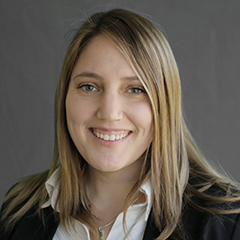Lori Timmins’s work focuses on using health services research to evaluate public policy programs designed to improve health care delivery and reduce costs, particularly for the chronically ill. She is an expert in quantitative research methods, including evaluation design, causal inference, data management, and statistical and econometric analysis.
Since joining Mathematica in 2014, Timmins has worked on a range of research and program evaluation topics, including primary care redesign, the chronically ill, collaborative peer-based learning networks, emergency care, acute hospital use, opioid use, and youth with disabilities. She has directed and held leadership positions on multiple projects. Currently, Timmins is the project director for the Guiding an Improved Dementia Experience Model and, with her team, will assess its effect on quality of care, caregiver burden, health care experience, costs, dementia care transformation, and disparities in health. Timmins is also the deputy impact lead for the Evaluation of the Making Care Primary Model and will assess its effect on patients’ health care use, costs, and health disparities. Timmins leads the participation analysis on the Primary Care First Model, one of the largest primary care redesigns in the United States, where she studies the types of practices that joined the model, the characteristics of their patients, and how representative these practices are, particularly when thinking of the potential for the model to reduce health disparities for people who are historically underserved.
Timmins previously served as the deputy project director for an evaluation of a nationwide peer-based learning initiative designed to help more than 140,000 clinician practices achieve large-scale health transformation. She led multiple quantitative analyses on the evaluation of the Comprehensive Primary Care Plus Model, including studying continuity and fragmentation of care as well as the types of emergency department visits and hospital admissions affected by the model. In other work, Timmins led quantitative analyses, including the impact analysis, for Independence at Home, a home-based primary care demonstration serving a predominately elderly and frail population. She was also an impact lead on two sites for the Health Care Innovation Awards, Round 2.
Timmins’s disability work at Mathematica includes studying the employment outcomes of youth with disabilities. She was the co-principal investigator on a study that assessed the feasibility of a rigorous impact evaluation of a transition program designed to improve adult employment. She also led quantitative analyses to examine the impact of early work experience on future labor markets.
Before joining Mathematica, Timmins was a researcher at Ireland’s Geary Institute, where she supported the meta-evaluation of a series of early childhood interventions in disadvantaged Irish communities. She also worked as an associate economist at the Federal Reserve Bank of Chicago, where she analyzed consumer inflation, consumer sentiment, and financial literacy outcomes across different socioeconomic groups. She holds a Ph.D. in economics from the University of British Columbia. Her research has been included in federal agency reports and published in the Annals of Family Medicine, Health Services Research, and the American Journal of Managed Care.


